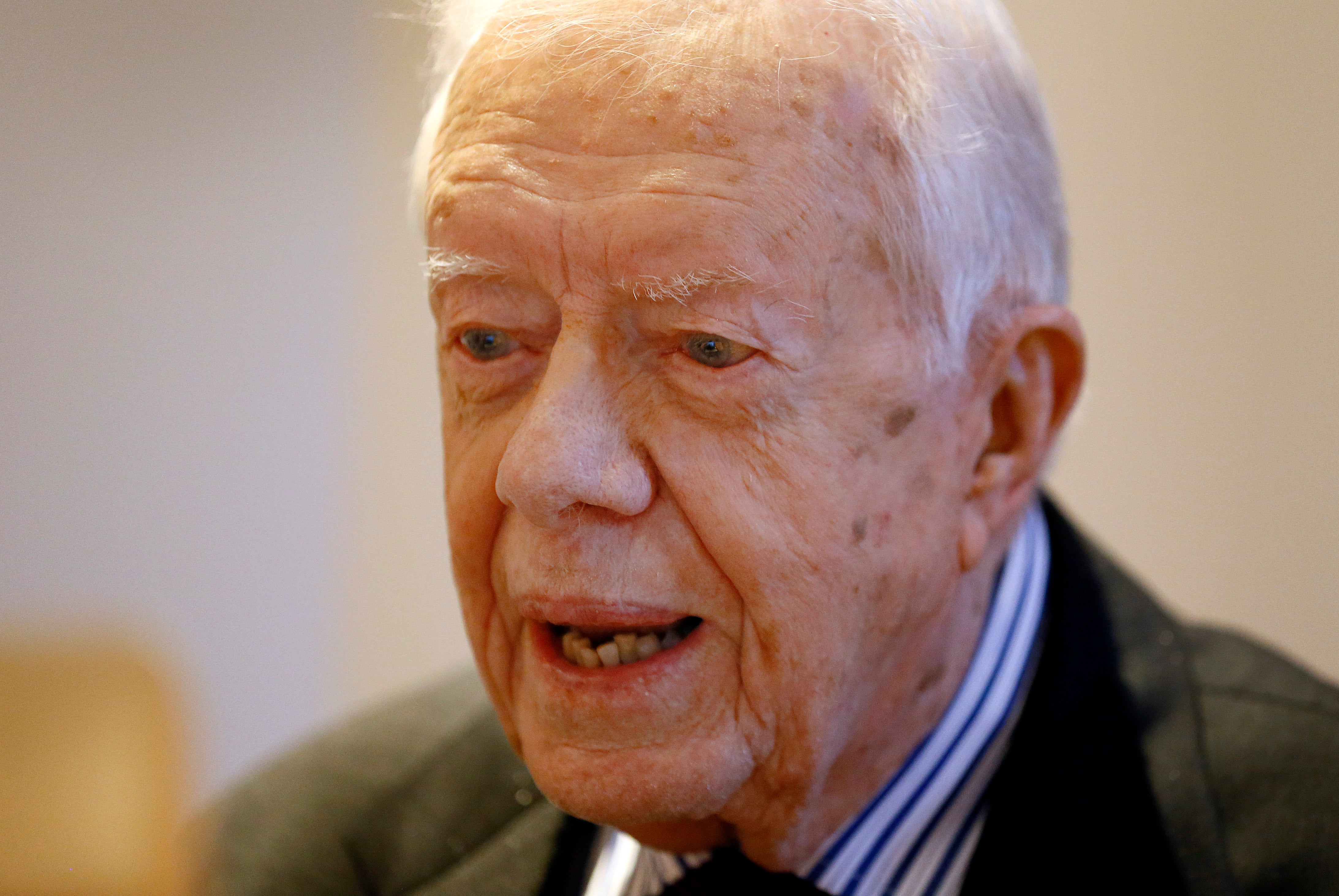Jimmy Carter brokered peace in the Middle East – then triggered his greatest failure
The one-term president’s humiliation by Iranian revolutionaries kicked off a decades-long American grudge, Mary Dejevsky writes


For all the praise that has been lavished on Jimmy Carter, he was a one-term president and his four years at the White House were for the most part a failure – albeit outweighed many times over by the charitable endeavours of his retirement.
The Carter administration did, however, notch up one diplomatic success, which might have gained more recognition without what happened next. The success came with the Camp David accords that were signed in September 1978; that is a third of the way through his term, and constituted a diplomatic breakthrough of the first order.
They afforded Israel more security than it had arguably enjoyed since its creation in 1948 and they brought peace, for a while, to the Middle East. It is hard to recall now, but the main conflict before then had pitted Israel against the whole of the Arab world, with Egypt in the vanguard as the strongest military power.
The Palestine Liberation Organisation, led by Yasser Arafat, had organised attacks on civilian targets, including hijackings of planes and ships through the 1960s and beyond. Carter set about rekindling a process begun by Henry Kissinger soon after he entered the White House, and the Camp David accords were the result. They provided for Egypt to recognise Israel, for the state of war between them to end – a formal peace treaty was signed in 1979 – and for Israel to hand back Sinai, which it had occupied since the 1973 war.
The pictures of Carter hosting president Anwar Sadat of Egypt, and the prime minister of Israel, Menachem Begin, for the signing ceremony at the White House, were pictures that every subsequent US president has sought to reproduce. Also hard to appreciate now, along with the scale of the breakthrough achieved by Carter in 1978, was the risk that both leaders were taking in signing up to the agreement.
A little more than three years later, Sadat was dead, assassinated during a military parade. Begin survived, but Yitzhak Rabin, the next Israeli prime minister to seriously attempt peace, this time with the Palestinians, was assassinated in 1995 after a peace rally in Tel Aviv.
All that said, the significance of the Camp David peace accords can hardly be overestimated, either as a basis for peace in the Middle East or for the US role there as peace-broker.

Had it not been for Iran’s Islamic Revolution the following year, Camp David might well have featured in Carter’s re-election campaign as the historic achievement it was, and it could have helped to offset some of the failings in domestic policy that scuppered his hopes for a second term.
But Iran’s revolution did happen, and the Camp David accords were almost eclipsed for US voters, not just by the revolution, but by the storming of the US embassy in Tehran by a group of student revolutionaries, who held more than 50 Americans hostage for what turned out to be 444 days.
An already bad situation was then made worse when a rescue mission authorised by Carter went wrong, causing the deaths of eight US servicemen. The operation was met with frustration and anger in the US. Carter was left in the worst of many worlds. US citizens, many of them diplomats, were held prisoner in their own embassy abroad; the US military had failed to rescue them, and an election was at hand. The US imposed swingeing sanctions, to no avail. It was Ronald Reagan who claimed credit for bringing the hostages home.
The repercussions of the embassy siege last to this day. What was seen by successive presidents as the humiliation of the US by Iran, and specifically by the mullahs, left an obsessive resentment against the Iranian regime, which has prevented any real rapprochement for the best part of five decades.
The US has had no diplomatic relations with Iran since 1980 and – it would appear – lost almost all feel for developments in that country. Any dealings are conducted through third countries. Aside from a rather half-hearted effort by Barack Obama – annulled by Donald Trump in his first term – to prevent Iran developing nuclear weapons (through the Joint Comprehensive Plan of Action of 2015), US relations with Iran have been blighted, with the US preferring force – assassinations and the like – to any diplomatic engagement, even as it acknowledged that Iran was the key power, and the key threat, in the region.
With the fall of Bashar al-Assad in Syria, the dynamic has changed. Iran has emerged as the big loser, with its two client forces – Hezbollah in southern Lebanon and Hamas in Gaza – already weakened by Israel, left stranded. Could this perhaps give an impetus to Trump to consider a possible opening to Iran? That would seem doubtful, given that in his first term he pursued the same policy of targeted assassinations as his predecessors. But a debilitated Iran that remains nonetheless a key to future conflict – or peace – in the region could perhaps tempt Trump to ask whose interests Washington’s continued pursuit of Iran really serves.
Join our commenting forum
Join thought-provoking conversations, follow other Independent readers and see their replies
Comments
Bookmark popover
Removed from bookmarks